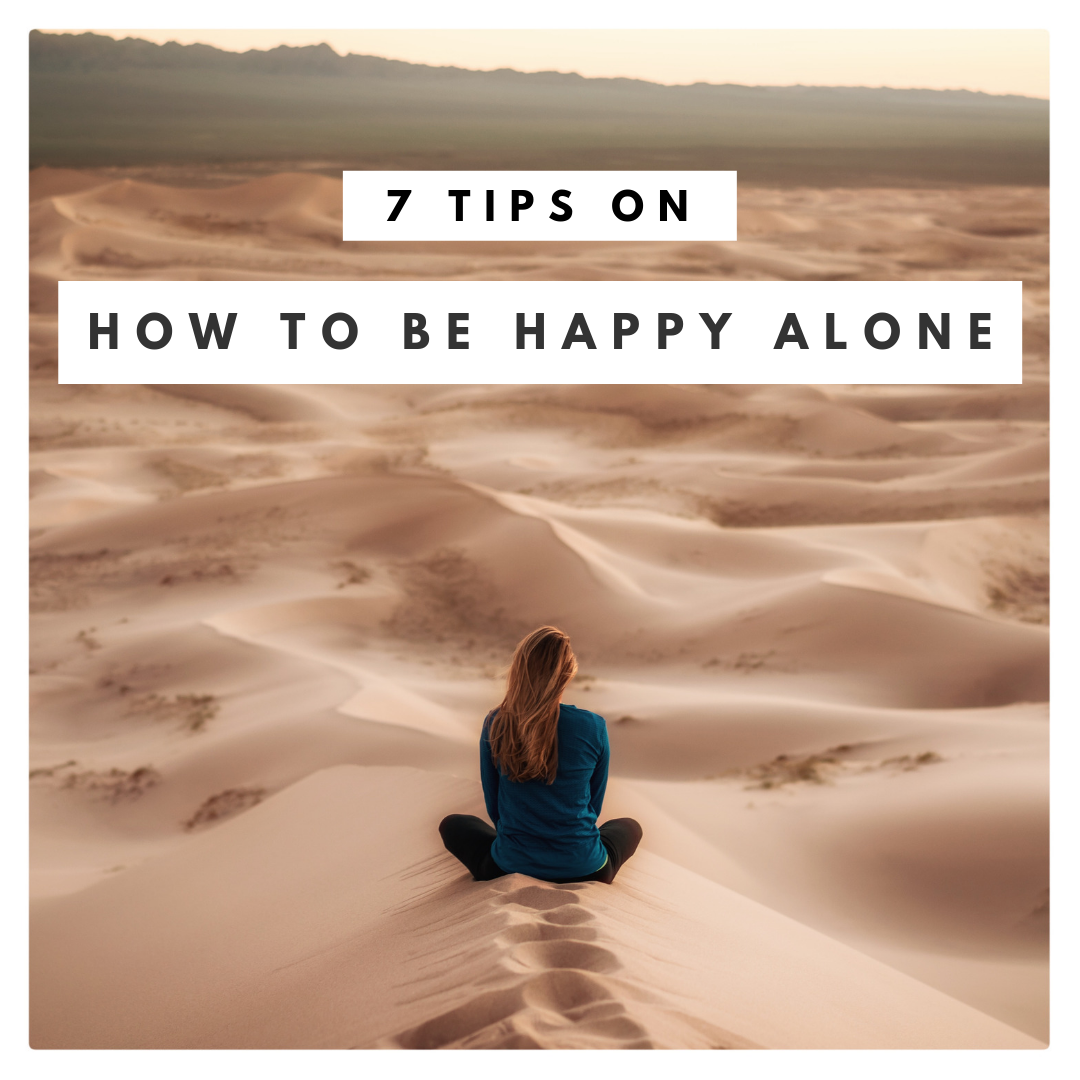7 Tips on How to be Happy Alone
There is no superior form of living. Singlehood and relationships are both situations which arise out of personal choice, and as such should be pleasant situations.
Society depicts singles and the unmarried as being sad, lonely and dissatisfied, a depiction that is nothing more than an unfortunate stereotype. But there’s a reason for it.
Marriage and relationships result in a higher natality rate. Population growth and economic growth are interdependent. In most developed countries, people are living longer and birth rates are falling continuously, which can be challenging to the economic wellbeing of countries that have social security systems and government pensions in place.
Conversely, these challenges are being tackled with solutions such as immigration. Macroeconomics to a side, is the widespread rise in singlehood necessarily a bad thing?
In short, No. While loneliness and social isolation are dangerous to our wellbeing, singlehood on the other hand can bring many positive benefits.
The benefits of being single – claimed by science.
Researchers and scientists have found various benefits to singlehood:
Single people are often closer to their friends, family and personal goals.
Sonja Lyubormirsky a professor of Psychology said on Big Think “research says that those who aren’t in relationships can be just as happy—and they’re not alone! Around 50% of the adult population in America is single, and they're often closer to their friends, family, and personal goals than their coupled counterparts.”
Single people have stronger social networks.
Researchers from Boston College and the University of Massachusetts found that single people tend to have stronger social networks.
Singles are in shape.
Researchers from University of Calgary and University of Maryland conducted a study on exercise and gender differences in the effects of marriage, parenthood and employment. They found singles tend to be fitter.
Single people can be more creative.
A study published in the US National Library of Medicine linked solitude to higher levels of creativity and intimacy.
Single people have more self-determination.
Bella DePaulo a social psychologist graduated from Harvard said “research comparing people who have stayed single with those who have stayed married shows that single people have a heightened sense of self-determination and they are more likely to experience a sense of continued growth and development as a person.”
An opportunity for a happier life
There is no superior form of living. Singlehood and relationships are both situations which arise out of personal choice, and as such should be pleasant situations. While they both present some sort of sacrifice and some form of reward. It is up to us to decide; which path will be more significant to us.
7 Things we can do to be happy alone
1. Spending time with friends and loved ones
As humans, we thrive on the company of other people. We’re not wired to live in complete isolation, having the most complex social systems amongst all creatures. Our level of self-preservation goes way beyond personal physical survival. We live in complex social groups, including families, friendships, communities, tribes, states and nations. These systems have been designed to survive, as the survival of the system means the survival of the individuals which compose the system.
| “The whole is greater than the sum of its parts.” – Aristotle
It is crucial to spend time with loved ones. Our family and friends nurture and support us, strengthening our confidence and resilience. Our bonds must be maintained and strengthened.
Research has shown that having a strong support system comes with various positive benefits, including higher levels of well-being, improved coping skills and a longer and healthier life.
2. Being selfless and self-accepting
Selflessness and self-acceptance are values, which must be nurtured daily. They pave the way towards self-fulfilment.
Selflessness attracts love, friendship and companionship like no other value. There are always opportunities to help others with no expectation of reward. In yoga, the path of selflessness is called Karma yoga, and is one of the four main paths of yoga which lead towards self-realisation.
Cultivating self-acceptance is also necessary step towards happiness. How can we be happy if we are not self-accepting?Other people’s opinions about us should be heard and examined. They may serve us to improve the way we express ourselves and communicate on a daily basis. But being rejected by someone else should never result in self-rejection. Adapting to others’ ideals on what we should and should not be, is living somebody else’s reality. Something which can easily make us unhappy and miserable.
Self-acceptance is the key. How do we accept ourselves? By being selfless, and accepting others as they are. Understanding that others do no need to conform to our expectations will help us understand we do not require conforming to the expectations of others. After all, what are expectations? They are only a possibility. A strong belief that something will happen in a specific way. They refer to the future, and the future is unreal, because it is yet to happen.
| “Be the change you wish to see in the world.” – Mahatma Gandhi
3. Discovering the opportunity ahead
Change is a very central aspect of life; nothing last forever. We are all aware of this fact, yet we expect a relationship to last forever.
Nothing is permanent, not even us. At the root of all misery lies attachment. We are attached to our desires, our dreams. Sometimes to certain aspects of a past relationship or to our idealisations.
Our attachment is so strong; we often fail to see the opportunity that lies ahead. As Gautama Buddha once famously said “All conditioned things are impermanent. Strive on with diligence.”
We must learn to move on without looking back. Facing our fears with courage – especially the fear of the unknown. All while knowing, that everything will be just fine.
“Life isn’t about waiting for the storm to pass… It’s about learning to dance in the rain.” – Vivian Greene
4. Never Letting the past sabotage our future
We learn from our mistakes. Our minds make us repeat what we like an avoid what we dislike, which seems like a rather rational approach. However, rationality is never applicable to emotion.
Letting the memories of past relationships sabotage future relationships is not the best approach to building meaningful relationships. It’s always best to honour the lessons we have learnt from previous relationships. Let the past inform and enrich the future, never sabotage it.
While vulnerability may be intimidating, it may also be a necessary step for building trust.
“Vulnerability is not winning or losing; it’s having the courage to show up and be seen when we have no control over the outcome. Vulnerability is not weakness; it’s our greatest measure of courage.” – Brené Brown
5. Retuning our subconscious mind with Yoga Nidra
Yoga Nidra teaches us how to relax with absolute awareness. Near the end of the practice a resolution is made. It is said that resolutions made during the practice of Yoga Nidra become especially powerful because they are made at a time when the subconscious mind is active.
Yoga Nidra is a great meditation to practice before bed if we want certain aspects of our life to improve, especially our level of happiness. A potent yoga nidra resolution for happiness in singlehood could be:
“I am happy alone.”
A concise and powerful resolution is bound to be highly influential to the subconscious mind, which is ultimately the captain of our life.
6. Never feeding misery
Often, when we are in bad a mood, a treat will do wonders. That glass of wine or piece of chocolate will make us forget that overwhelming feeling we’re trying to get away from.
Scientific research shows we crave deserts and sweets when feeling low from long-established patterns which started at childhood, when we were both rewarded as well as soothed with sweet treats. However, research has also shown a correlation between sugar consumption and depression due to the sudden spikes and drops in blood sugar.
Instead, we should try to understand where the feeling is coming from, and with full awareness try to disregard it, make it unimportant. Understand that emotions of all kind are part of life, and we must experience them all.
“The word ‘happiness’ would lose its meaning if it were not balanced by sadness.” – Carl Jung
7. Keeping a food and sleep schedule
Being regular is an absolute requirement, not just for happiness but even for our health. Research conducted by the American Academy of Sleep Medicine showed that higher sleep regularity was significantly related to higher morning and evening happiness, healthiness and calmness during the week.
Yogis often arise during Brahma Muhurta, the “divine hour.” This is the best time to start the day and tune in with nature. Eating on time is also extremely important. A drop in blood sugar can make one feel drowsy, irritable and miserable. It is wise to choose foods that release energy slowly, keeping sugar levels steady. This will not only benefit our mood, but also our overall wellbeing. Foods which release energy slowly include: oats, grains, nuts and seeds. Hydration is also related to our mood; not drinking enough fluids can make us constipated.


